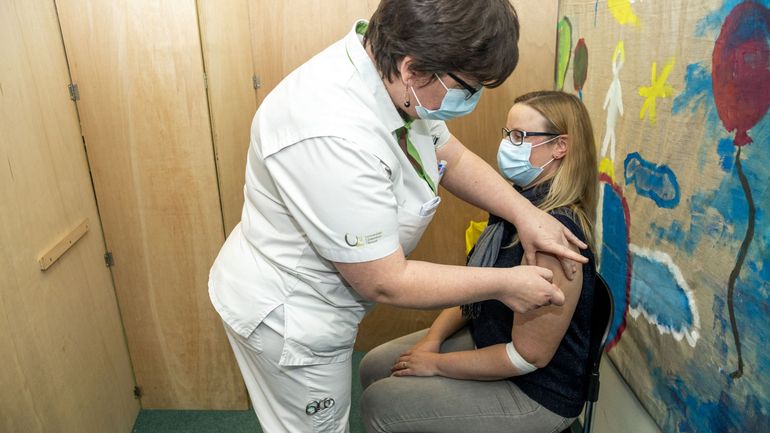Around 38% of French speakers in Belgium would refuse a coronavirus vaccine, compared to 20% of Flemish people, according to the motivation barometer of the UGent, UCLouvain, and the University of Brussels (ULB).
Meanwhile, in Brussels and Wallonia, just 51% are positive about the corona vaccines, in comparison with 71% in Flanders, the report published on Thursday showed.
"This difference between the language groups had decreased in February, but increased again as of March," professor of health psychology and member of the expert group of psychologists on the coronavirus, Olivier Luminet (UCLouvain), told Le Soir.
He added that, after months of worrying that there would be a shortage of doses, the big risk now is that "we will now have enough doses but not enough people to administer them."
This reluctance to be administered with a coronavirus vaccine could bring the target of vaccinating at least 70% of the total population into jeopardy.
"At this time, additional efforts are needed to motivate especially French-speaking citizens, lower educated and middle-aged persons," the report stated.
Both in Brussels and in Wallonia, additional efforts have been made, including reminder phone calls and relaunches of the vaccination campaign giving people who have already been offered an appointment a second chance, to increase the vaccination intake among its citizens.
On Thursday, Francophone Health Minister Christie Morreale and Walloon Interior Minister Christophe Collignon called on local authorities to increase awareness of Covid-19 vaccination, as "their knowledge of the field and their proximity to their citizens will enable them to initiate other measures."
However, there is still a chance that people will change their minds, as 74% of those who were doubtful about vaccination in December-January were willing or very willing to accept a vaccine in April, which "suggests that a large proportion of doubters have become convinced of the importance of vaccination."
Those who were hesitant about receiving a coronavirus vaccine indicated that their family doctor, a nurse, or pharmacist had the strongest stimulating influence on them, while testimonials from well-known people, peers, or politicians had little or no influence on doubters.
As of Thursday, over 40% of adults in Belgium, or more than 3.7 million people, have received the first injection of a coronavirus vaccine, whilst almost 1.2 million (about 12.4% of the adult population in Belgium) have received a second dose and are considered fully protected.

